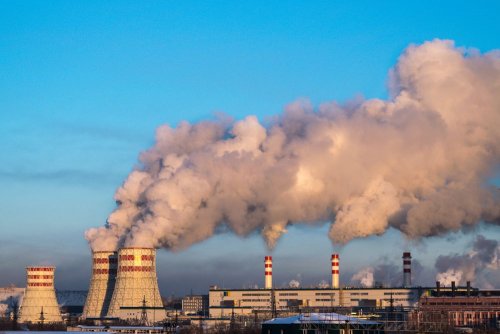Starting from 2026, Ukraine will be forced to purchase CBAM certificates for the export of certain goods to the EU, but limited financial resources, rising costs, and the loss of investment attractiveness hinder the implementation of environmental standards.
This was stated by Victoria Karpets, manager of the committee on industrial ecology and sustainable development of the European Business Association, in the blog of Economic Truth.
According to Viktoria Karpets, Ukraine seeks to join the European Union, and one of the accession requirements is to reduce CO2 emissions into the atmosphere through the Carbon Border Adjustment Mechanism (CBAM), which will introduce additional duties for producers who do not comply with environmental standards.
EcoPolitics presents for its readers the main points from Viktoria Karpets's blog: Is the Ukrainian economy ready for these innovations? What might the consequences be for entrepreneurs? Read on.
Details
CBAM is an ambitious “green course” aimed at reducing emissions of pollutants; however, even all developed economies cannot fully comply with it, let alone Ukraine, which faces destroyed infrastructure, making the implementation of new standards extremely challenging due to a lack of funding and external threats. In wartime conditions, implementing CBAM will be difficult for Ukrainian companies, and its immediate introduction may lead to economic difficulties.
The expert notes that barriers to decarbonization include limited resources, as Ukraine allocates the lion’s share of funds to defense, while the country also faces rising logistics and energy costs, and has lost its economic appeal to foreign investors. These factors directly slow down the pace at which environmental standards are being implemented.
European Union requirements for businesses
The specialist says that by 2050, the following regulations will apply: the Carbon Border Adjustment Mechanism (CBAM), the Emissions Trading System (ETS), and Ukraine’s nationally determined contribution (NDC) under the Paris Agreement. These will not only change emission regulations but also the overall positioning of Ukrainian goods on the European market.
Initially, CBAM was just an internal EU initiative, but over time its reach has spread to other countries through the introduction of additional duties on products from countries with lower environmental standards. Potentially, demand for such products will decrease among buyers, which poses a direct threat to Ukrainian exports to the EU.
Although CBAM is a mechanism for implementing green technologies, it also protects the EU from the import of cheap products from other countries. From 2026, Ukraine will be required to purchase CBAM certificates to continue trading certain goods covered by this mechanism with the EU.
Consequences
According to the expert, halting the export of goods subject to CBAM regulations will result in decreased investment in Ukrainian enterprises, and there will be a need to look for new markets for these products. However, it should not be forgotten that suspending Ukrainian exports will also negatively impact the EU business environment.
For this reason, the European Business Association emphasizes the importance of establishing its own CBAM and the possibility of deferring its implementation. The Ukrainian government should send an official request to the European Commission to postpone CBAM under the critical conditions of war. This will prevent the economy from reaching a dead end and give businesses the opportunity to adapt and maintain competitiveness.
Advantages of CBAM for Ukraine
The sudden introduction of the requirements could indeed cause instability for the economy, but the mechanism offers significant advantages. Full compliance with CBAM requirements will accelerate European integration and make it easier to obtain financial grants to support the economy. Adherence to the conditions will improve the country’s image on the global stage because accepting all CBAM requirements demonstrates the country's readiness to address climate change.
As EcoPolitics previously reported, Bosnia and Herzegovina plans to launch its own emissions trading system before the implementation of CBAM.





